#Allied Invasion of France
Text


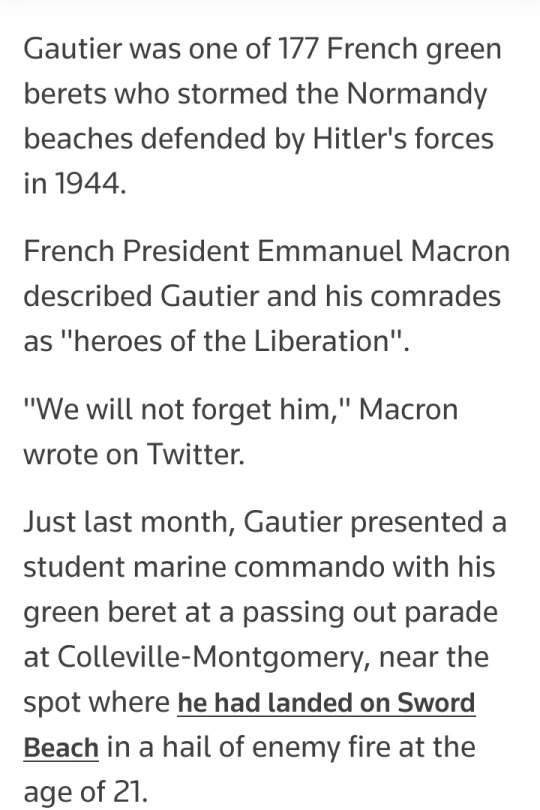



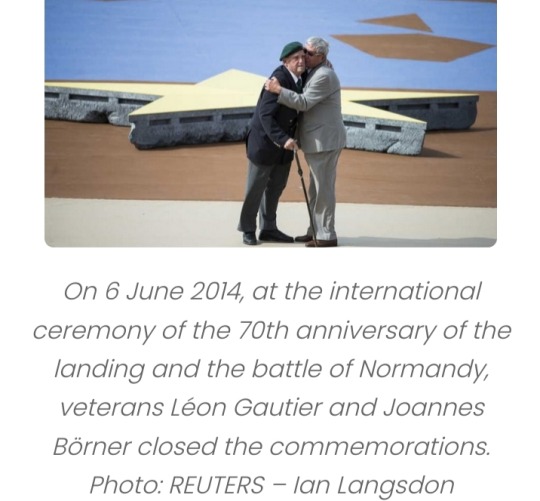
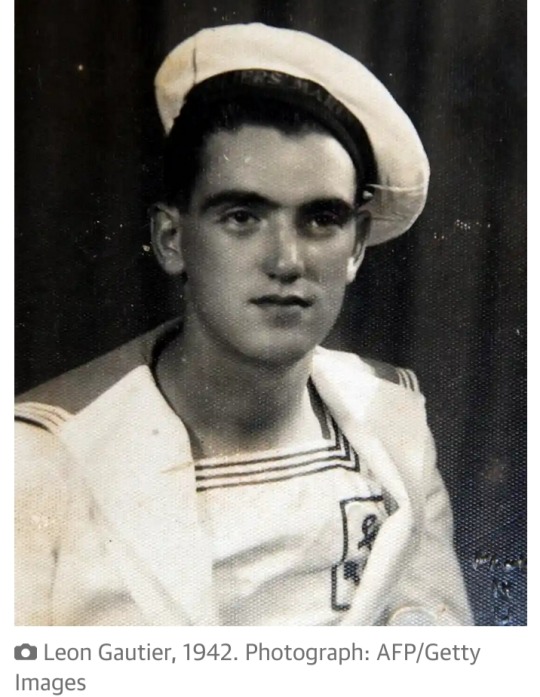
Leon Gautier (October 27, 1922 - July 3, 2023)
#Leon Gautier#D-Day#World War II#1944#Normandy#France#French green berets#Sword beach#Emmanuel Macron#General Charles de Gaulle#Free French Naval Forces#French Navy#Free French Forces#Allies#war#D-Day invasion#war veteran
50 notes
·
View notes
Text
On this day in 1944, the hinge of European history began to turn.
#On this day#6 June 1944#Juno Beach#France#WWII#Normandy landings#Allied invasion#British Army#Europe#Operation Overlord#US Army#armed forces#Canadian Army
50 notes
·
View notes
Text
A load of Porkies: Verlaine’s poetry and the French resistance on D Day 1944
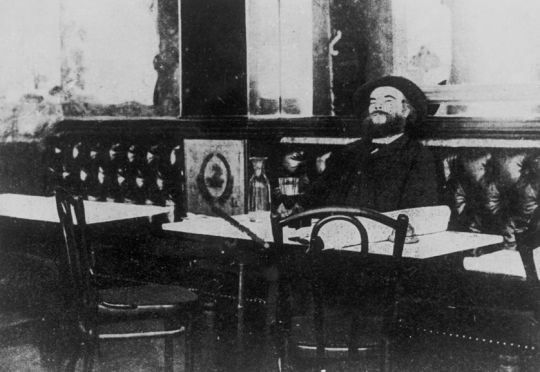
Les saglots longs
Des violons
De l'automne
Blessent mon coeur
D'une langueur
Monotone.
- Paul Verlaine, Chanson d’automne (1866)
6 June 1944 marks the commemoration of the historic D Day landings in Normandy. Every year I exchange messages with family members, friends, and also some of my army veteran comrades with whom I served in the past. The simple messages of remembrance are a reminder to us of the sacrifices made by British and the Commonwealth, American, and the French on that fateful day when Allied forces stormed the beaches on Normandy.
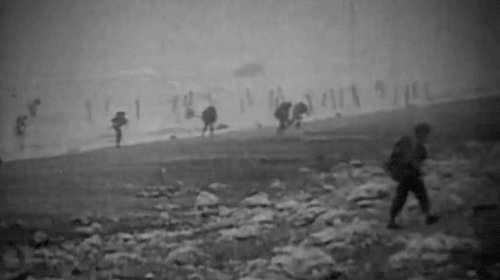
I remember receiving one post from an ex-veteran friend who flew with me. It was a picture of a local delicacy, Lincolnshire Chine, a traditional dish of cured pork and parsley only made in Lincolnshire, and a cryptic message underneath, ‘chanson d’automne’.
My friend is too witty for his own good sometimes and even I was stumped. He had read modern languages at Oxford and so was always prone to quoting French poetry at every opportunity, no matter how inappropriate the situation - like the time we were fortunate to have avoided a rocket attack from the Taliban but for some cool headed piloting and as we took a breather to thank God we made it out he bursts into poetry. He was (and still is) ferociously clever but wears it lightly behind his amiable character. It’s not surprising that our senior officers didn’t warm to his dry wit in the officers mess as he often lampooned the more boorish of the officer class that passed through our mess as guests. At heart he was a farmer and he longed to go back to his family farm lands in Lincolnshire after his time was up flying helicopters in the British army.
I nicknamed him Lucy after the great Roman patrician, soldier, and statesman, Lucius Quinctius Cincinnatus. Cincinnatus was the outstanding Roman military leader who displayed humility, loyalty, and modesty. At the height of his power and fame he displayed the highest civic duty by giving up everything to go back to his simple farm life - which in time became the Roman civic ideal. I still think the nickname suits my ex-comrade in arms very well.
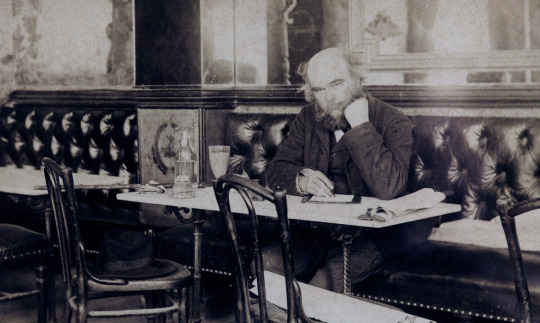
Drinking wine gives me moments of clarity and it slowly dawned on me what his cryptic message had meant.
Chanson d’Automne (1866) was a poem by the celebrated French poet, Paul-Marie Verlaine. His poem Chanson d’Automne (1866) is among the most beloved in French poetry. It captures his nostalgia for lost time in fewer words, and possibly just as well, as does Proust in six volumes.
Although it might have surprised Verlaine had he known it, the first lines of his poem were used by the British in the Second World War to signal the start of D-Day to the French resistance, which began the Allied invasion of Nazi-occupied France. D-Day (or "Operation Overlord") was a herculean planning task, requiring remarkable coordination both between the British, American, Free French, and Commonwealth armies, and with French resistance fighters on the ground, who were charged with helping aerial bombers disrupt German transportation routes, so as to impair the Germans' ability to send reinforcements.
But what had Paul-Marie Verlaine got to do with a side of cured pork from Lincolnshire?
Paul-Marie Verlaine lived and worked in Lincolnshire in 1875, teaching French, Latin and drawing at William Lovell's school. He had spent eighteen months in prison for shooting and wounding his lover Arthur Rimbaud and, when released in January that year, considered becoming a Trappist monk before deciding (the next best thing?) to become a school master in England. He came to London, registered with an employment agency and was soon heading north to this remote and, on the face of it, inhospitable backwater. Verlaine then spent a year as a schoolmaster in the village of Stickney, just north of Boston, Lincolnshire, in the mid-1870s and it is said that he became enamoured with this Lincolnshire delicacy. Verlaine continued to search for stuffed chine as he journeyed around Britain, but as is still the case today, he failed to find it outside Lincolnshire.

Unless you’re from Lincolnshire then the chances are you’ve never heard of stuffed chine. Unique to Lincolnshire, stuffed chine is a traditional dish made with cured pork and parsley. Once a county staple, its popularity has declined over the years as the younger generation looks to more modern cuisine and the older cuts are slowly forgotten. In the days before fridges and freezers, families would cure their meat to last them through the lean winter months. Each family would have a couple of pigs to kill - some of the meat would be salted and hung, and the rest used fresh.
Communities were tightly knit and there was often a friendly agreement between neighbours to stagger their kills and share fresh meat among the families, who then reciprocated when they in turn killed their pigs. Neighbours would pass on and receive this “pig cheer” all through the winter months while the pig killing went on, thus ensuring they always had fresh meat.
Once spring approached, however, they would look to use up some of the meat that had been salted and put away. Stuffed chine was traditionally served when the May Hiring Fair was in town (a kind of outdoor employment exchange, where people made themselves available for temporary work), and the largest chine was usually saved for Christenings – seeing a fresh row of parsley growing in a garden was often the sign that there was a baby on the way!
When the time came to use the chine it was soaked in cold water overnight, then carefully sliced from the spinal side towards the rind. Finely chopped parsley was packed tightly into the deep pockets in the flesh, then the joint was turned over and the process repeated on the other side. Next, the chine was very tightly wrapped up in muslin or an old pillowcase and simmered until cooked through. The cooked meat was left to cool still wrapped in cloth in order for it to set. Once completely cooled it was unwrapped, sliced thinly and served with a sprinkle of vinegar to cut through the fat.
Few butchers still use this traditional method as the cooked chine has to be carefully sliced by hand to avoid the bones, which due to the large bone-to-meat ratio makes it quite an expensive cut. For this reason many butchers choose to use collar bacon instead, which contains no bone and can therefore be sliced by a machine. There is something rather beautiful about the strips of pink salty pork divided by the flashes of punchy green parsley that immediately draws you in when you see it standing proudly in the butcher’s shop.
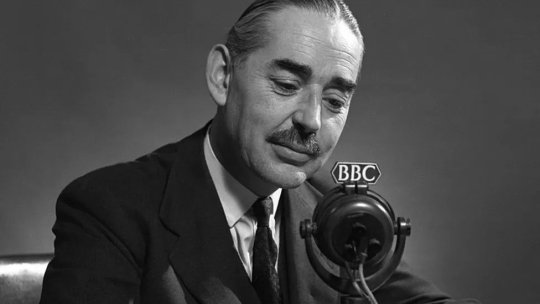
My ex-veteran friend’s witty post was a reminder how deeply immersed the British and the French (as well as the Germans) were in sharing a common currency of shared culture even in the bloody carnage of war. It was at 9.15pm French time on 5 June 1944, the opening notes of Beethoven's 5th, forming the Morse for V for Victory, sounded across the airwaves of BBC's Radio Londres into France. The speaker, Franck Bauer, read out personal messages that were known to individual Resistance groups in France. Hundreds of messages were sent out on the eve of the invasion, such as “Les carottes sont cuites” (The carrots are cooked), "La mélasse demain donnera le cognac" (Molasses tomorrow will bring forth cognac), and ““Jean a une longue moustache” (Jean has a long moustache).
But the most famous of all were verses from Verlaine's 'Chanson d'automne' destined for a Resistance group in central France. For the Resistance, these were a call to arms. All of these messages were picked up by the 15 Army listening post in Tourcoing, but although the Germans knew these messages were destined for the Resistance, they didn’t know their exact meaning. During the night of 5/6 June, the Resistance would carry out over 1,000 acts of sabotage, knocking out phone lines and blowing up railways, thus playing a vital and often overlooked role in the success of D-Day.

One of my favourite details of the whole D Day plan was how the Allies alerted the French that it was time to begin sabotaging rail-lines. On 1 June 1944, to tell the resistance to stand by for further alerts, the BBC transmitted the first three lines:
Les sanglots longs
Des violons
De l'automne
Per Arthur Symons' translation: "When a sighing begins / In the violins / Of the autumn-song".
The Germans wrongly believed that these lines were addressed to all Resistance circuits in France, and that when the next three lines were broadcast it would mean that invasion would follow within forty-eight hours. The lines were directed to a single Resistance circuit, Ventriloquist, working south of Orléans, instructing it to stand by for the next three lines, which would be the signal for it to carry out its railway-cutting tasks - in conjunction with the Allied landings.
Then, on June 5, to signal that sabotage efforts should begin, the next three lines were sent:
Blessent mon coeur
D'une langueur
Monotone
Symons: "My heart is drowned / In the slow sound / Languorous and long."
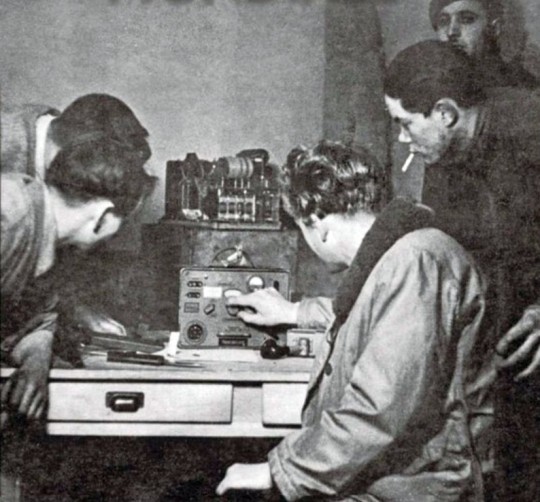
Both lines were intercepted by German forces, who took them as significant but didn't take adequate action; for one thing, they overestimated the scope of the sabotage operations to come. The second three lines of the Verlaine poem were broadcast over the BBC to the Ventriloquist Resistance circuit, instructing it to act at once in carrying out its railway-cutting sabotage. The SS Security Service radio interception section in Paris heard this as it was broadcast.
Believing, rightly, that the broadcast of the section of the poem was related to invasion, but wrongly, that it was an Allied call for railway sabotage throughout France, the Security Service immediately alerted the German High Command in the West.
An hour later, the German Fifteenth Army warned its various corps that intercepted messages pointed to an invasion within forty-eight hours (the parachute landings were fewer than three hours away). The German force responsible for most of the imminent assault area, the Seventh Army, which had received too many false warnings in the past, took no action.
The combination of airstrikes and ground sabotage proved extremely successful, especially as they wound up forcing the Germans to cross the Seine via ferry. The Germans ended up sending two panzer divisions all the way from the Russian front to fend off the invasion, but because of sabotage and bombings, it took less time to travel from the eastern front to France than it did for them to proceed from eastern France to Normandy.
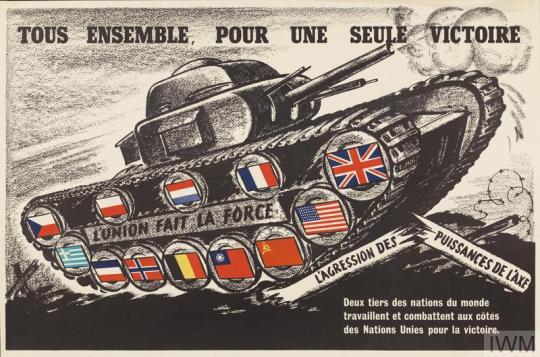
This is a good time as any to also point out at the Allied invasion of the Nomandy beaches would not have gone as well as they did without the help and support of the French themselves. I think there has been a skewering of perceptions that the D Day landings and the subsequent liberation of France was purely due to the Allied forces. What gets overlooked is the bravery and courage of the home grown French Resistance that played a crucial part also.
Truth be told as Allied soldiers stormed the beaches of Normandy on D-Day, 6 June 1944, the French Resistance were paving the way for their arrival. The French Resistance, the covert volunteers who had been struggling against the Nazis since 1940, leaped into action. They put their lives on the line as at no other time in the Second World War, risking everything to help the professional soldiers. This was their chance to liberate their country, and they seized it with both hands.
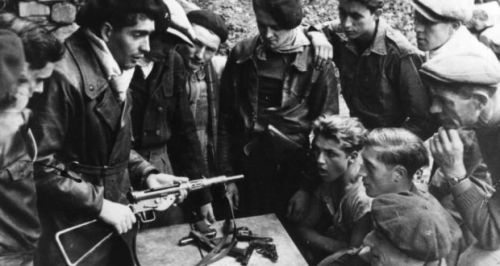
The French Resistance first emerged following the fall of France in 1940. With the nation’s armed forces shattered, some French people fled to Britain to remain free and continue the war. Most others bowed, with varying degrees of willingness, to the occupiers and the collaborating Vichy regime. But a few took another path, forming cells of spies and guerrillas who kept the hope of a free France alive. They provided intelligence to the Allies, sabotaged German facilities, and smuggled downed airmen and escaped POWs to safety.
The risks were incredibly high, and many Resistance members met horrible deaths at the hands of the Nazi regime. But their numbers kept growing, and by June of 1944, 100,000 Resistance members were waiting to rise up.
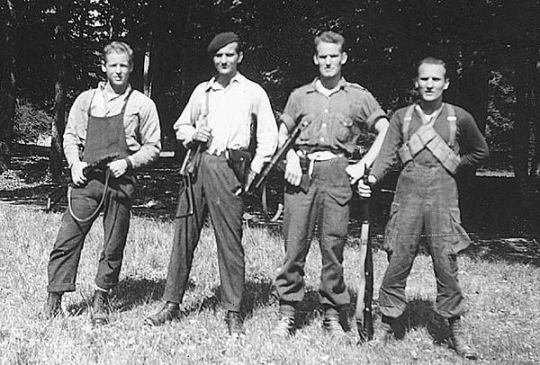
From the start, the Resistance had received support from elsewhere in the Allied camp. Britain’s Special Operations Executive (SOE), America’s Office of Strategic Services (OSS), and the exiled Free French forces under General de Gaulle had all made efforts to strengthen the volunteer force. They had forged connections with existing Resistance cells, fostered the growth of new ones, and provided them with supplies.
Perhaps the most important support the Allies gave came in the form of radio sets. These allowed the Resistance to more effectively coordinate with the rest of the Allies and with each other. Central to this was Radio London, a propaganda station the Allies used to keep hope alive in Europe. By transmitting pre-arranged code phrases in the personal messages part of its broadcasts, Radio London let Resistance members know about specific events, such as supply drops.
Immediately before D-Day, the Allies sent in the Jedburgh teams; three-man groups of Allied soldiers who were parachuted into France with radio sets. They joined up with Resistance cells, supporting them in their work and bringing them under Allied military leadership.
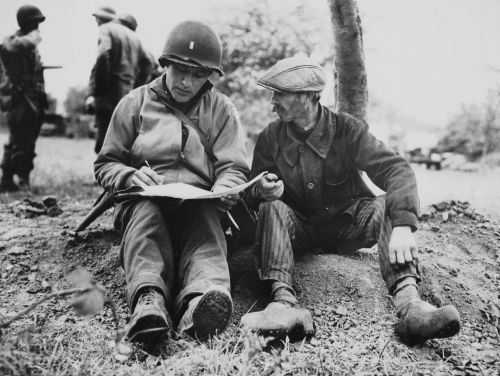
The Americans and British couldn’t afford to entirely trust the Resistance or even the Free French. Therefore, they kept details of the plans for D-Day from these critical allies until the last minute. In the lead-up to D-Day, signals told the Resistance that something was coming. They were encouraged to launch attacks on specific types of targets to prepare the way. At the start of June, a signal told them that the invasion was imminent, but when and where remained a closely guarded secret.
The Resistance carried out several distinct but related operations around D-Day:
• Plan Vert – sabotaging the railway system.
• Plan Tortue – sabotaging the road network.
• Plan Violet – destroying phone lines.
• Plan Bleu – destroying power lines.
• Plan Rouge – attacking German ammunition dumps.
• Plan Noir – attacking enemy fuel depots.
• Plan Jaune – attacking the command posts of the occupying forces.
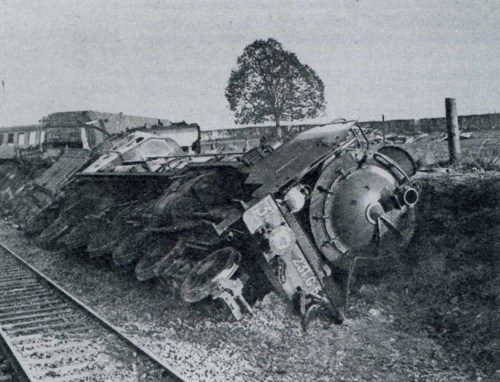
Some of these plans went active in the weeks leading up to the invasion. Plan Vert was particularly effective. Together with an Allied bombing campaign, the Resistance destroyed 577 railroads and 1,500 locomotives, three-quarters of the trains available in northern France. As part of Tortue, they also destroyed 30 roads and, again with British bombers, 18 of the 24 bridges over the northern stretch of the River Seine.
These attacks on the transport network were crucial to the success of D-Day. With trains out of action and roads ruined, the Germans struggled to get reinforcements to the front. The work of the Resistance crippled any potential for a significant counter-attack.
So on the night of 5 June 1944, when the crucial message arrived from Radio London, they knew attack was coming and more importantly they were ready.
This is what they waited for since 1940, it was time for for Plan Violet. Across the country, they sprang into action, cutting phone lines and attacking communications centres. 32 telecommunications sites were destroyed in these attacks.
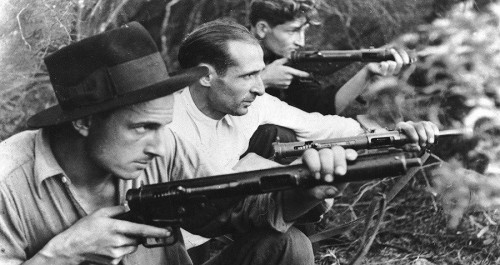
Emboldened by the Allies’ arrival, many Resistance cells went on a war footing. They ambushed German troops heading for the front. In some towns and villages, they killed or drove out the occupying authorities.
Close to the Allied landings, some of these operations were carried out in coordination with the SOE and Jedburgh teams, or with paratroopers who had landed behind German lines. As the regular forces advanced, the Resistance rose up to help and to punish the occupiers who had oppressed them for the past four years.
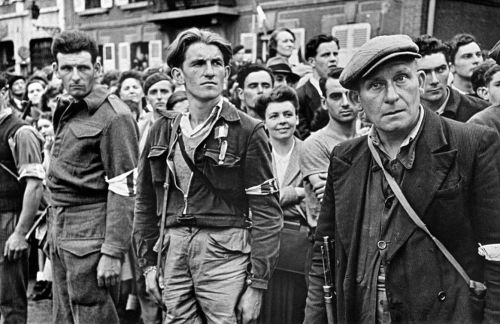
Unfortunately, this ended badly for some groups. Far away from the newly arrived armies, they lacked the support they needed to survive now that they had revealed themselves. Some of these groups were forced on the run. Others were killed weeks before the Allies could reach them. French leaders encouraged them to stand down and return to guerrilla operations until regular forces reached them, in hopes of saving lives.
Having understood the meaning behind my friend’s cryptic message of Paul Verlaine’s poem gave me pause for thought as I reflected on the bravery and the sacrifices made by all who took part in D Day, both on the beaches and behind occupied enemy lines.
The nature of war always reveals the true nature of those who fight. War, someone said, is not human nature, but a habit. We tell the dead to rest in peace, when we should worry about the living to live in peace.
So I messaged back to ‘Lucy’, my witty ex-comrade in arms, and quoted a stanza from Paul Verlaine well known poem, Crimen Amoris.
I knew ‘Lucy’ would understand that I understood his message on this most solemn of days to commemorate the bravery and sacrifices of the Greatest Generation through the prism of our own shared experience of war in Afghanistan:
Nous avons tous trop souffert, anges et hommes,
De ce conflit entre le Pire et le Mieux.
Humilions, misérables que nous sommes,
Tous nos élans dans le plus simple des voeux.**
Too greatly have we suffered, angels and men,
In this endless war between the Worst and the Best,
Humiliated, unhappy have we been
In darkling flights by the simplest vows addressed. ***
#essay#paul verlaine#verlaine#poem#D Day#DDay#Normandy#second world war#french resistance#british army#US army#invasion#allies#nazi germany#occupied france#france#french#war#sabotage#BBC london#violence#culture#personal
24 notes
·
View notes
Text
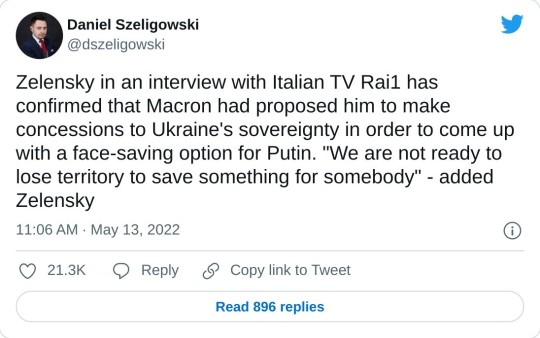
✊🇺🇦✊🇺🇦✊🇺🇦✊✊✊✊❗
#zelensky ukraine#volodymyr zelensky#zelensky & macron#ukraine france russia#save face#zelensky insists on sovereignty in talks#zelensky a hero#stop putin#putin war criminal#stop russian invasion#ukraine resistance#stop putin's agents usa#putin war ukraine russia#defend ukraine#stop putin allies#help ukraine#ukraine war
38 notes
·
View notes
Text
HEARTBREAK ON TOUR!
charles leclerc x famous!reader
summary: in which the lavender haze has been lifted. or in which america’s it couple splits.
part 1: don’t start, part 2: wtf does ET know?
faceclaim: varies but for rn madison beer
ally’s radio 📻: heavily inspired by taylor swift and joe alwyn’s breakup bc im still in mourning. a lot of tswift references 🫶
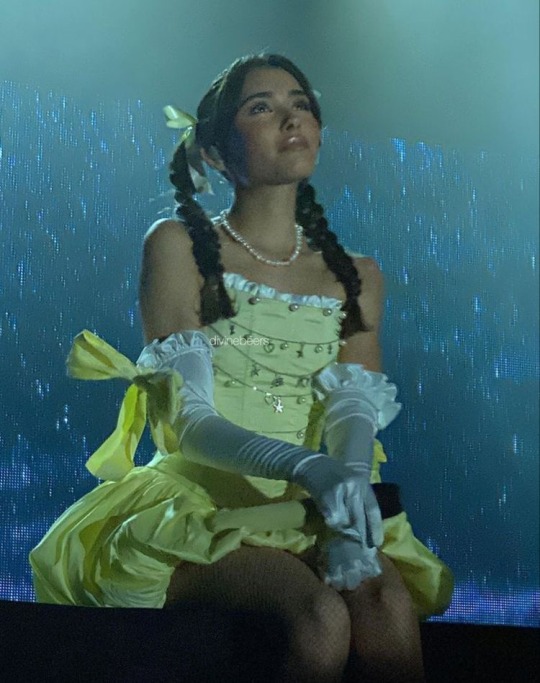

liked by italyrry, parisy/n, and 83,783 others
y/nflorals Y/N GETTING EMOTIONAL DURING THE 1 LAST NIGHT IN GLASGLOW! via loveonshow
View all 22 comments
user4 okay but the fit fire
sweetnothingy/n my show my song ❤️🩹
user5 man she even looks pretty when she cries this is not fair bruh
back2decemberl/n this was a religious experience. i nearly died
loveontourhs FRANCE GOT ROBBED.
dontblamemey/n SHE REPLACED INVISIBLE STRING WITH THE 1?? ARE YOU SHITTING ME?
leclercy/n @dontblamemeleclerc i’m gonna kms

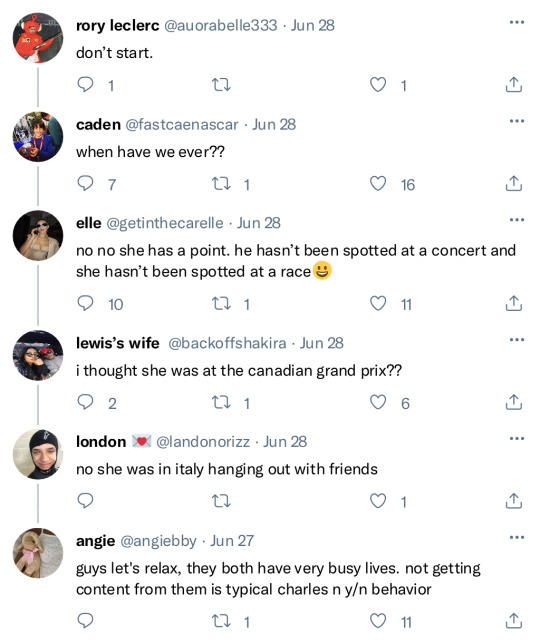

liked by haileybieber, norizzland0, and 122,728 others
enews photos caught of ‘lover’ singer #y/nl/n and #charlesleclerc fighting outside a restaurant in london tonight. click link in bio for more info on the it couple’s nasty choice of words.
View all 122 comments
arianagrande take this down immediately. please respect people’s privacy for once oml
chary/n @arianagrande ARIANA WHAT ARE U DOING HERE??
devil_leclerc this was not the family reunion i was expecting 💀
badbloody/n this feels so invasive and wrong on so many levels
trishapaytasnotreal oh this looks nasty, poor bby 🙁

liked by lewishammi,midnightrainy/n, and 608 others
lordpercevalupdates i don’t wanna scare anyone even more but…
View all 12 comments
user1 girl what
y/nmybeloved “i think i’ve seen this film before…”
charles.y/n @y/nmybeloved don’t even.
allmychampagney/n fell to my knees at walmart




ally’s radio 📻: i swear this gets better 😭 pls im a star 🙏
planning on making this a multi-series so i if u want a tag, pls lmk!! 💋.
#charles leclerc x reader#formula 1#lando norris x you#carlos sainz jr#harry styles x reader#harry styles#charles leclerc#forumla one#f1 imagine#lewis hamilton#social media blurb#scuderia ferrari#lewis hamilton x reader#charles leclerc x you#charles leclerc angst#heartbreak on tour#taylor swift#f1 wags#f1 instagram au#f1 fanfic#max verstappen#austrian gp 2023#mercedes amg f1#f1edit
3K notes
·
View notes
Text
Biden's visit has concluded. Israel has spent his entire visit trying to muddy the waters of what happened to Al Ahli Hospital and despite their cartoonish efforts, it hasn't worked
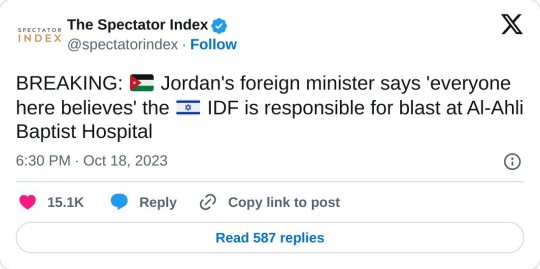
The Global South and especially West Asia know who is responsible for the bombing and no amount of AI voice recordings of 'Hamas operatives' can change that.
Israel war crimes continues to backfire on them even in America
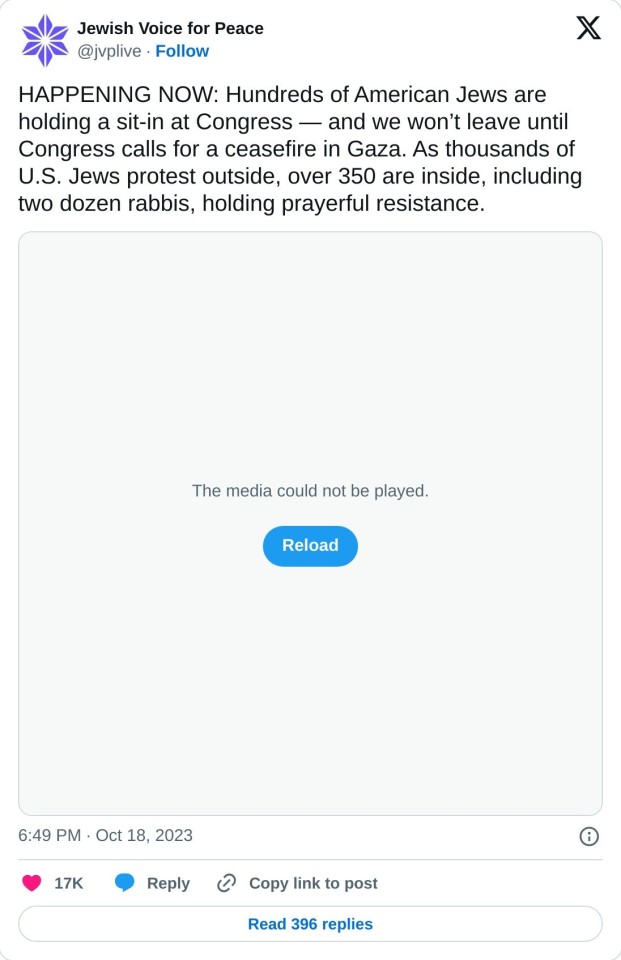
Biden backing Israel has had an impact on America's image. Here's a Wall Street Journal article warning that America's continued support is turning countries towards Russia and China which is code for turning countries against America
An EU official said that the EU will pay a heavy price in the Global South for its continued, unabashed support for Israel
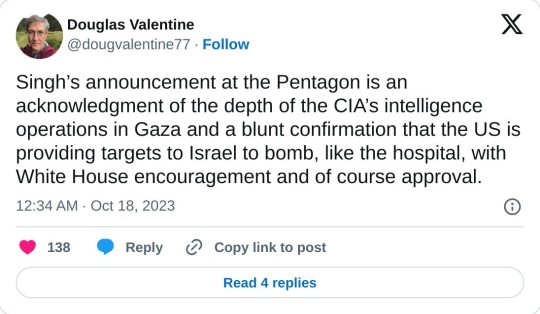
There's also speculation that the Biden administration knew about the bombing before it happened.
Countries that were/are allied with Israel continue to distance themselves from Israel like Russia. The reason I keep highlighting Russia is because the West has been running out of ammunition due to the Russia-Ukraine war and that includes Israel which is rumoured to have sent 80-90% of its ammunition to Ukraine. If this conflict lasts a long time, Israel will need to buy weapons and ammunition and Russia would be one of the countries they would turn to (same with China)
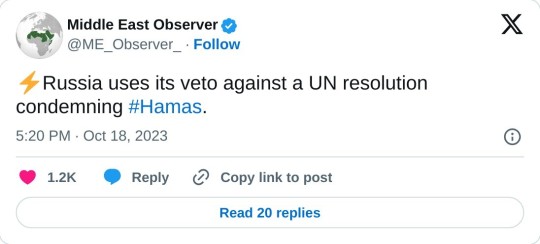
So, where are we in terms of the conflict? After days of waffling over a ground operation in Gaza, Israel postponed it until some time after Biden's visit and now we're back here again
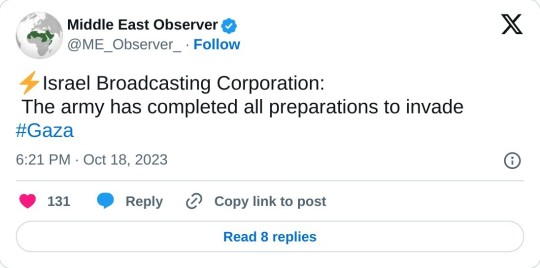

Now I'm no military expert but constantly going back and forth on whether or not you'll invade Gaza is bound to do damage to your troops' morale. No wonder they're dealing with mass desertions while their citizens demonstrate on the streets. The Israeli leadership has no plan besides bombing Gaza.
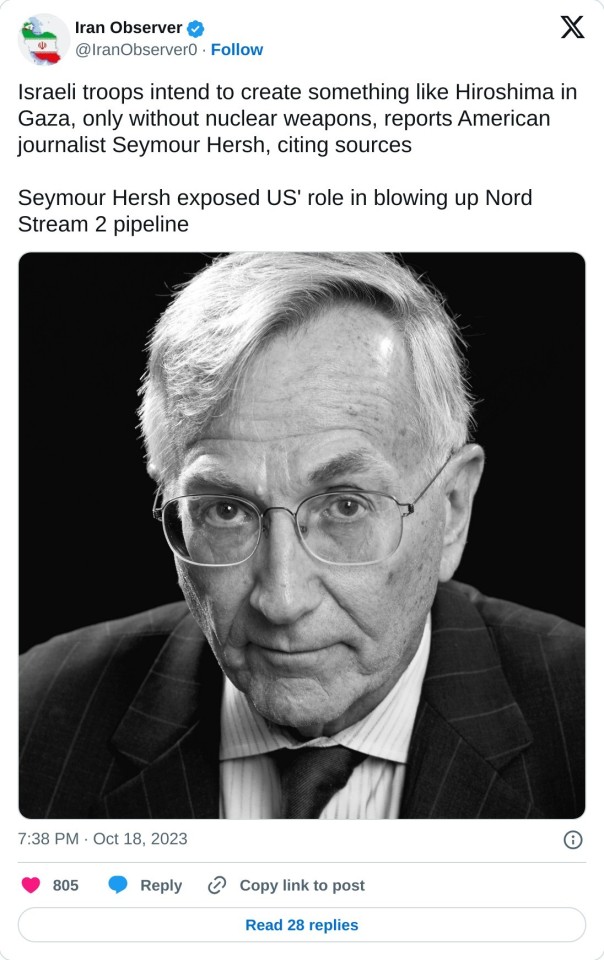
I've seen people on twitter say that the hospital bombing was done deliberately to normalise IDF soldiers to mass civilian deaths in places like hospitals, schools, places of worship, etc. I don't know if I believe that - I think they wanted to push Iran and Hezbollah's buttons before hiding behind Biden. I don't think these people are thinking strategically.
As far as the possibility of regional war is concerned, all indicators show that the West preparing for the war to escalate
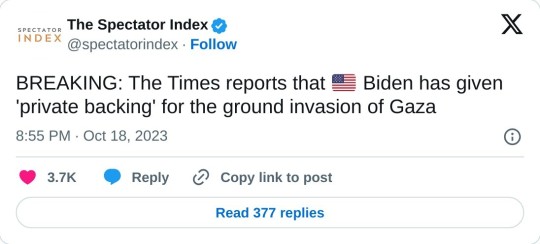

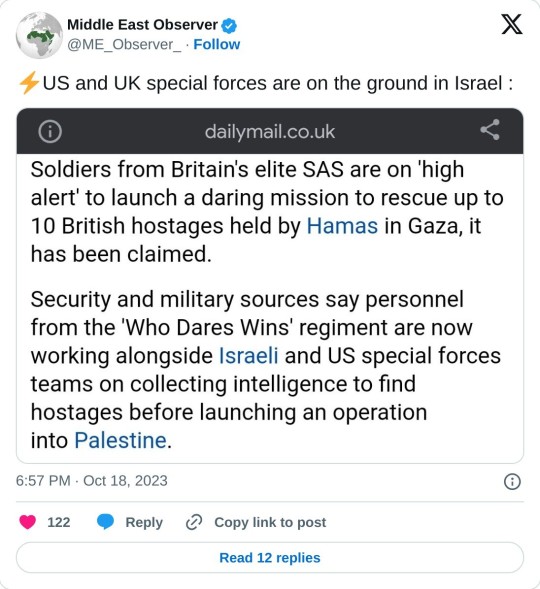
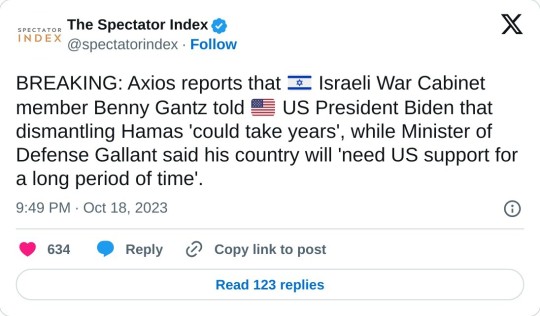
Seems to me the Israel has seen what Ukraine has received in just a year and a half of war. They're done receiving a paltry 3.8 billion every year and now prepared to drag out the conflict and I can't say I blame with Biden proposing a 100 billion package for both Ukraine and Israel. This will stretch America too thin as far as funding in concerned. Cracks are already showing
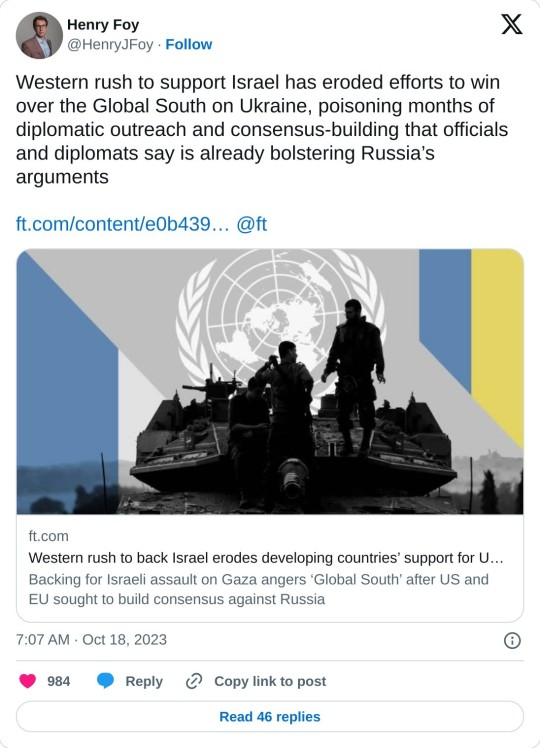
There are parts of the US government that is unhappy that the Ukraine war is losing attention. During the Ukraine war, you had parts of the government that wanted focus to shift from Russia to China. Because of that, the US government has spent the past year alternating between hostility to Russia and threatening to go to war with China over Taiwan. When Niger expelled France from within its borders, America was preparing to join that conflict until Mali and Burkina Faso declared they would fight with Niger. Now they're entering a third front in West Asia. In short, the mighty empire is expending a lot of resources right now and it is not the threat it was when it invaded Iraq and Afghanistan in the early 2000s.
At any rate, the ground invasion of Gaza won't go the way Israel and America hopes it will
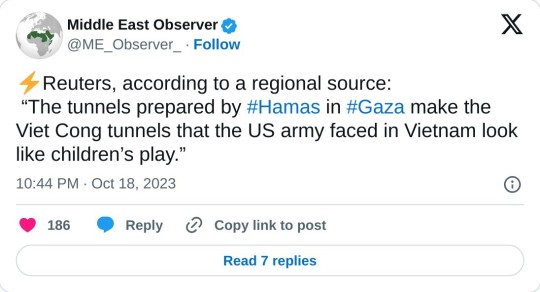
The coalition of Palestinian resistance fighters are still patiently waiting for the IDF to come meet them. Their allies aren't backing down either
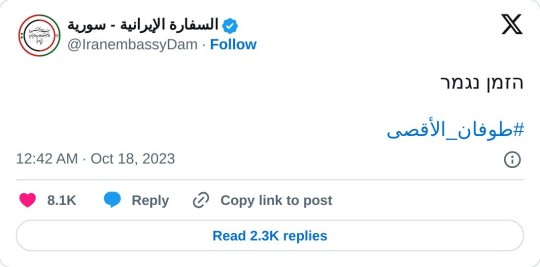

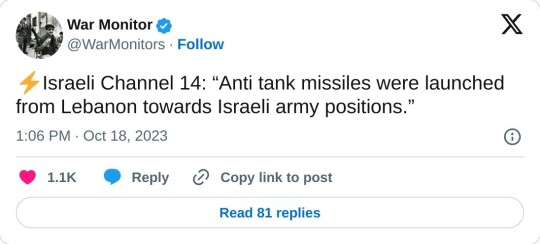
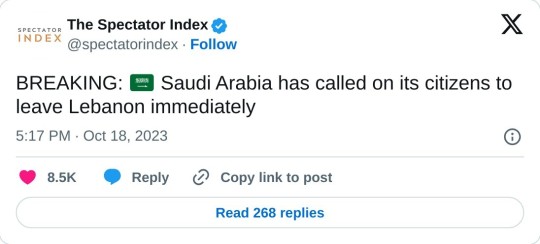
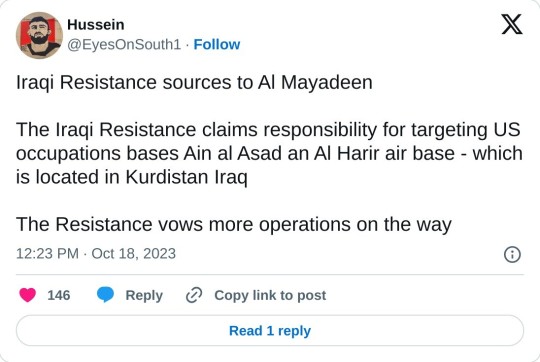
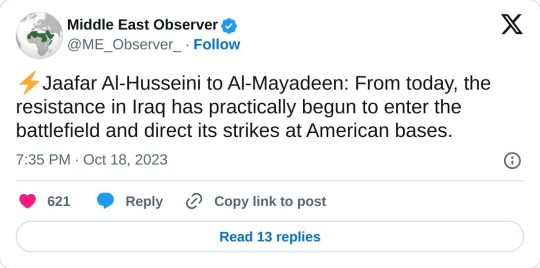
The reason I keep making these posts is to remind people that, while the genocide of the people of Gaza is horrifying, the war for the liberation of Palestine has not yet been lost.
Do not lose hope. From the river to sea, Palestine WILL be free
1K notes
·
View notes
Text
If you’re wanting to watch Band of Brothers/The Pacific/Masters of the Air in chronological order with BoB 1st Currahee episode split up in the dates on screen I made a list
(Updated: April 12, 2014 7:58pm pst)
July, 10 1942 Easy Company Trains in Camp Tocca (Band of Brothers Ep. 1 Currahee 2001)
August 7, 1942, Allied forces land on Guadalcanal (The Pacific Ep. 1 Guadalcanal/Leckie 2010)
September 18, 1942, 7th Marines Land on Guadalcanal (The Pacific Ep. 2 Basilone 2010)
December 1942 The 1st Marine Division on Guadalcanal is relieved (The Pacific Ep. 3 Melbourne 2010)
*June 23, 1943, Easy Company Trains in Camp Mackall N.C. (Band of Brothers Ep. 1 Currahee) *
June 25, 1943, 100th Bomb Group flew its first 8th Air Force combat mission (Master of the Air Ep. 1 2024)
July 16, 1943 the 100th Bomb Group bombed U-Boats in Tronbhdim (Masters of the Air Ep.2 2024)
August 17, 1943 the 4th Bomb Wing of the 100th Bomb Group bombed Regenberg (Masters of the Air Ep. 3 2024)
*September 6, 1943, Easy Company Boards transport ship in Brooklyn Naval Yard (Band of Brothers Ep. 1 Currahee)*
September 16, 1943, William Quinn and Charles Bailey leave Belgium (Masters of the Air Ep.4 2024)
September 18, 1943
-*East Company trains in Aldbourne, England (Band of Brothers Ep. 1 Currahee)*
-John 'Bucky' Egan returns from leave to join the mission to bomb Munster (Master of the Air Ep.5 2024)
October 14, 1943, John ‘Bucky’ Egan interrogated at Dulag Lut, Frankfurt Germany (Masters of the Air Ep. 6 2024)
December 26, 1943, 1st Marine Division lands on Cape Gloucester (The Pacific Ep. 4 Gloucester/Pavuvu/Banika 2010)
March 7, 1944, Stalag Luft III Sagan, Germany, Germans find the concealed radio Bucky was using to learn news of the War (Master of the Air Ep.7 2024)
*June 4, 1944, D-Day Invasion postponed (Band of Brothers Ep. 1 Currahee)*
*June 5, 1944 Easy Company Boards air transport planes bound for Normandy (Band of Brothers Ep. 1 Currahee)*
June 6, 1944, 00:48 & 01:40 First airborne troops begin to land on Normandy (Band of Brothers Ep. 2 Day of Days 2001)
June, 7 1944 Easy Company Takes Carentan (Band of Brothers 3x10 Carentan)
August 12, 1944, The 332nd Fighter Group attack Radar stations in Southern France (Masters of the Air Ep.8 2024)
September 15, 1944 U.S. Marines landed on Peleliu at 08:32, on September 15, 1944 (the Pacific Part Five: Peleliu Landing)
September 16, 1944 Marines take Peleliu airfield (the Pacific Part Six: Airfield)
September, 17 1944 Operation Market Garden -(Band of Brothers 4x10 Replacements)
October 22/23, 1944, 2100 – 0200 Operation Pegasus (Band of Brothers 5x10 Crossroads)
October, 1944 Battle of Peleliu continues (the Pacific Part Seven: Peleliu Hills)
December 16, 1944 Battle of the Bulge (Band of Brothers 6x10 Bastogne)
January, 1945 Battle of Foy (Band of Brothers 7x10 The Breaking Point)
February 14, 1945 David Webb rejoins the 506th in Haguenau (Band of Brothers 8x10 The Last Patrol)
April 5, 1945 506th Finds abandoned Concentration Camp
(Band of Brothers 9x10 Why We Fight 2001)
April 1-June 22, 1945 Battle of Okinawa (The Pacific Part Nine: Okinawa)
May 7, 1945, Germany Surrenders V-E Day
- (Master of the Air Ep. 9 2024)
- (Band of Brothers 10x10 Points 2001)
August 15 The Empire of Japan surrenders end of the War (The Pacific Part Ten: Home)
215 notes
·
View notes
Text
I Feel You Linger In the Air

You ready for this?
The quickest of quick thoughts: I loved this show and hated the ending, but not for the reason you think.
This is gonna be one of my big meta beast-sized posts, skip to the end for the final review.
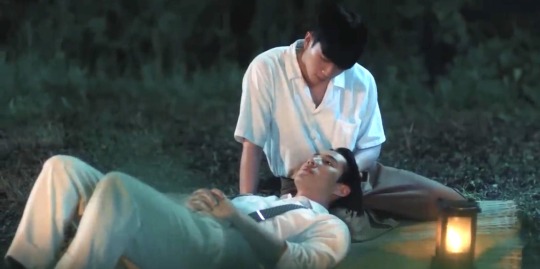
Some Historical Context for I Feel You Linger In The Air - Thailand 1925-1932
I love history and so here's some info that any Thai watcher would likely know, but the rest of us might not... ready?
The Historical Stage:
Burma (now Myanmar) to the west is occupied by the British.
The French hold Vietnam to the east.
Everyone is bickering over what would become Cambodia & Laos.
China occasionally gets involved from the North (also, lots of immigrants from China at this time accounting for a large percentage of the merchant/middle class)
Eventually, Japan would invade during WWII.
In part, The Kingdom of Siam was kept a "neutral" party because none of the surrounding colonial powers wanted to risk offending any of the other players in the area.
Siam re-negotiated sovereignty in 1920 (from USA) and in 1925 (from France & Britain). But during the time of this show (late 1929) it was back to it's customary type-rope balancing act of extreme diplomacy with the allied western colonial powers that surrounded it.
Recognizing that Thailand was never colonized (although it was invaded), it's boarders were constantly nibbled at and it was "ambassador-occupied" off and on by westerners whose military backing and exploitive business concerns simply outmatched the monarchy, especially in the technology department (as well as by reputation on the global stage at the time).
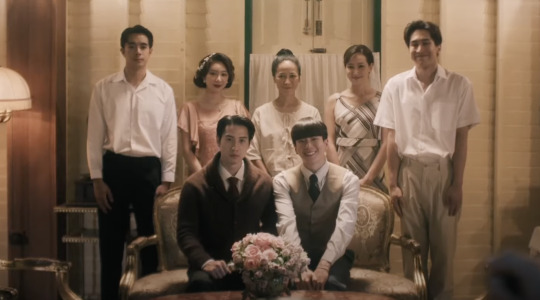
In other words, the farang in this show (James & Robert) were always gonna be both the baddies and the power players of the narrative. (Farang is the Thai word for non-Thai's of European descent, the word means guava.)
The king of Siam at the time (Vajiravudh AKA Rama VI) was initially somewhat popular but also regarded as overly extravagant since Siam had been hit by a major postwar recession in 1919. It should also be noted that King Vajiravudh had no son because he was most likely gay (which at the time did not much concern the Siamese popular opinion, except that it undermined the stability of the monarchy leaving it without an heir).
He "died suddenly" in 1925 (age 44) with the monarchy weakened and succession handed off to his younger brother.
In 1932 a small circle of the rising bourgeoisie (all of whom had studied in Europe, mostly Paris), supported by some military, seized power from the monarchy in a practically nonviolent Siamese Revolution installing a constitutional monarchy. This is mentioned in IFYLITA in the last few episodes but did not (apparently) appear in the original novel.

Siam would then go through:
dictatorship,
WWII,
Japanese invasion,
Allied occupation,
democratic elections,
military junta,
the Indochina wars,
communist insurgency,
more democracy and popularization movements,
multiple coups,
more junta,
more monarchy,
eventually leading us to the somewhat chaotic insanity of Thai politics we have today. (Which is, frankly, a mix of monarchy, junta, democracy, egocentric popularism, and bribery.)
The Filming of I Fell You Linger in the Air
The director if this show, Tee Bundit (Hidden Agenda, Step by Step, Lovely Writer, TharnType), has never particularly impressed or offended me as a director. I would have called him simply "workmanlike" in execution: not offensive, serviceable.
So much so that I spent some time hunting for info on IFYLITA's cinematographer (who remains uncredited on MDL) because this one, of all Tee's pantheon, is ultra stylish. It, frankly, felt too good for him.

Specifically, there is a repeated visual motif in intimacy scenes of either Yai or Jom being filmed from behind a screen/drape/curtain making them seem more translucent, like a ghost or spirit. While the other half of the pair is filmed with sharp clarity. In the first half of the series this is more likely to be Yai (an unknown and mysterious element), as the show progresses, it's more likely to be Jom (the person outside of place and time, destined to vanish all together). This cleverly conveys story, tension, and foreshadow (future shadow?)
Occasionally we shift over so they both become obscured and then clear again.

This stylized version of dirty framing and filters is used to foreshadow and then constantly remind us about that Jom slipped (and is slipping) through time and the disconnect that causes to his sense of reality and purpose, and to his burgeoning relationship.
For example, the scene where Yai is drunk and asleep in his bed. The first time Jom is sitting in a chair drawing him. Yai is blurry behind the screen while Jom is solid and sharp.
This filming technique combined with dirty and peekaboo framing is being used to give the watchers the impression of looking at something we maybe shouldn't, like we are being creepy and intruding on their private time. After all, they can see EACH OTHER clearly, it's only us who have the visual impairment.
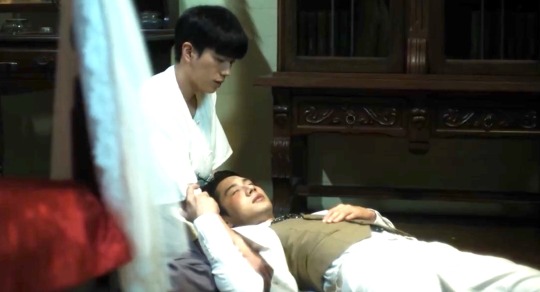
This gives us a sense of doom and discomfort and slight sensation that we shouldn't be there. We shouldn't be watching. But ALSO that we too are outside of time, filtered by the future.
In other words his sense of displacement is being used to trigger ours visually.
It's all quite clever.
It's both beautiful and atmospheric and discomforting and touch stressful. Meaning that it is ALSO a visual vehicle to drive narrative tension. As effective as scary music, perhaps more so in this show (since I personally found the musical motifs and refrains somewhat overused.)

Linguistic corner
The word for reflection and shadow is the same in Thai.
Note on the por/phor/phô honorific in Thai
I have not encountered it before in BL. I am indebted to @embraceyourfandom for the following information;
Phô is a paternal honorific, luang phô is used for respected monks. It basically means father. And is oft seen as male honorific for village elders. It's also used as a male prefix in the names of several occupations like:
พ่อครัว phô khrua (khrúa= kitchen -> chef)
พ่อค้า phô khá (khá= trade -> merchant)
พ่อมด phô mót (mót= person of occult knowledge -> wizard)
พ่อบ้าน phô bân (bân =house -> butler) - most relevant
So, Yai's use is probubly foreshadowing that Jom will be a butler for his house, and is primitively referring to him with this title.
All that said, phô can also be used by a "man who is older/higher on hierarchy to refer to a younger/lower on hierarchy man with intimacy and/or affection."
I think all this has to do with Jom's demonstration of education. Yai figured out early on that one of the reasons Jom doesn't belong and cannot fit in with the servants is that he is more educated than a peasant (of this time period), which for Yai adds up to him being originally from a higher status and possibly wealthy family, especially since Jom speaks English and has travelled (he has a non-northern accent).
There is very little Thai middle class at the beginning of the 1920s since trade is being dominated/dictated by the West, or Chinese merchant operations, and Siam is a monarchy. So for a nationalize Thai citizen educated means military, landed gentry with trade operations (like Yai), royal/political/diplomatic connections, or... none of the above. This changes, especially in the south, throughout this decade (as it did in other parts of the world). So there is a rising bourgeoisie going on in the background but it's not that obvious in Chang Mai at this time.

What Jom's educated lack of status means to Yai is that Jom's family either got wiped out or politically disenfranchised possibly as part of the 1912 attempted coups (or even WWI)? This would be mystifying for Yai because Jom doesn't act like he comes from a military family at all. So his background and status is very confusing for Yai, but Yai does know one thing...
Jom is NOT lower class by the standards of Yai's temporal worldview and existence.
For a young man to be educated and yet entirely alone is very dangerous and suspicious. Also, let's be clear, Jom doesn't look or act like a laborer. He red flags "cultured" all over the place.
Yai is paternalistic and caring towards Jom out the gate because Yai has a big ol'crush but also because he recognizes "his own" is trying to survive while isolated and scared.
Yai wants to rescue Jom. Yai is an ineffectual 20 year old gay intellectual. But poor thing sure tries.
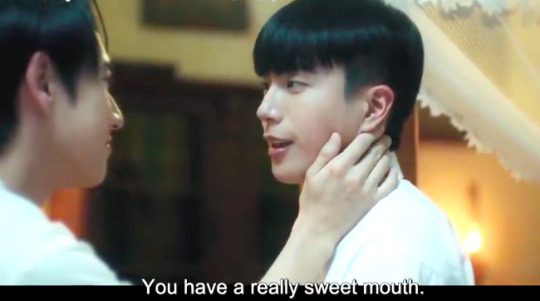

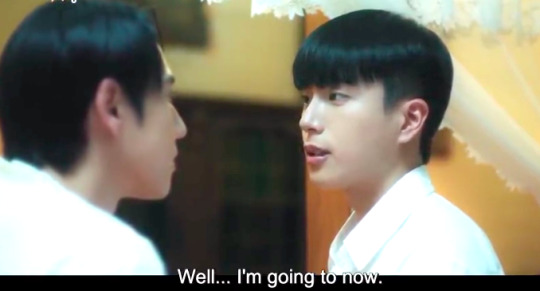


Let's Talk About How I Felt About I Feel You Linger in the Air
The historical aspect was great.
I adore historical romances and we almost never get them in BL. I was always gonna be biased towards this show. (As indeed I am towards Nobleman Ryu's Wedding, Tinted with You, and To Sir With Love.) Aside from some classic Thai BL production issues (less than normal, this is very high production value for Thailand) and my issues around the sound track and repetitive repriens (which frankly were more noticeable because I binged the last half) I have no complaints on that score (heh heh).
The surrounding support cast were all quite good and we even got us some lesbians!

The emotional and narrative tensions were excellent.
Any issues I had with pacing came from focus on characters that didn't interest me, but probubly did interest others. I wasn’t wild or particularly interested in the family drama or the side characters/couples, but they were necessary to make this a fully fleshed story with historical context and to give Yai much needed characterization. Also this use of a ensemble cast is very close to Thailand's lakorn heart, even thought this one had way less scenery chewing ludicrous soapy drama (thank heavens).
I was delighted that external threat, stressors, and conflict drove this plot. That's refreshing in BL.
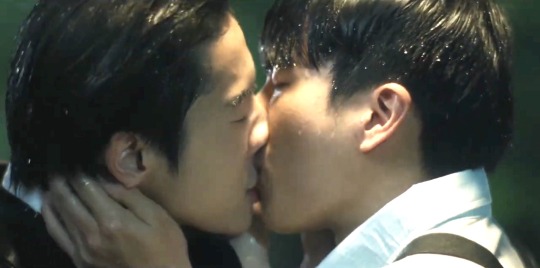
I have no arguments with the chemistry and kisses and sex scenes were tasteful and lovely, occasionally even heart-wrenching, and it's nice to see Thailand especially use physical intimacy to drive plot, and not the other way around.
I love historicals partly because every tiny touch can have such lingering significance, they're very elegant in their chaste physicality. This show didn't need to move into higher heat, but I'm grateful it did because even that was very well done. Thai BLs can often feel clumsy around intimacy, but not this one.
The final sex scene before Jom and Yai separate forever utilizes the ubiquitous director's-favorite-romantic-moments-flashbacks (required of all Asian romance dramas) but with acceleration and tension driven by the noises of sex, which I've never seen/heard done before. In other words: climax of sex = climax of the romance story, I see what you did there, Tee. Clever. Very clever. Bit on the nose… erm… on the… well you know what I mean.
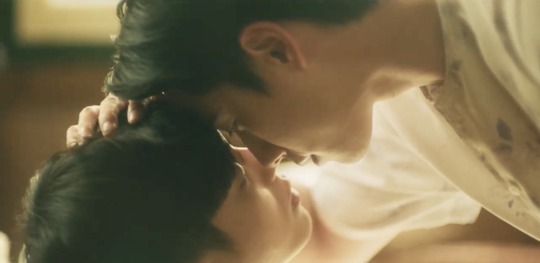
Like all Thai BLs this wasn’t perfect, but for me this is as close as Thai BL gets to high quality romance and that’s what I want the most from my drama watching experience (if not necessarily my Thai BL experience).
But... and you knew the but was coming didn't you?
I absolutely hated the ending.
It wasn't sad, don't worry, but it also wasn't good.
There is a long drawn out separations sequence and then Jom returns to the present, drowning from a car accident. Jom is "rescued" by an moustachioed iteration of Yai from the distant past (who we met once before) and then wakes in hospital. Some time later, Jom returns to the house in Chang Mai where Yai turns up and they reunite.
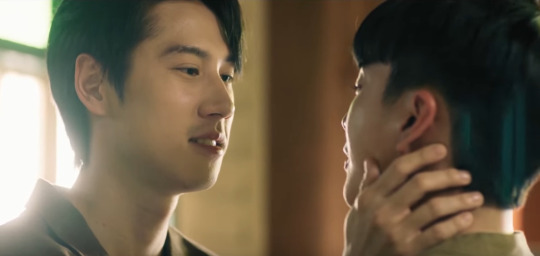
The end.
There is a stinger featuring Jom once more hurled back in time, only further, meeting the warrior mustache Yai once more.
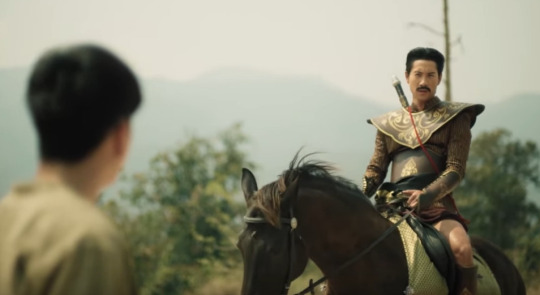
Okay, that's all I knew and all I saw.
Confused? So was I.
If this had been a regular time travel romance: Yai would have been the EMT or doctor attending Jom when he woke up and their "this time period" romance would commence. With either shared memories, or not.
Had this been set up for audience comprehension in line with the original novel, we should have had flashbacks from both Present Yai (he's not the same one, as it turns out) and deep-past Moustache Yai interwoven throughout the series. Preferably with some focus on Present Yai's quest for reunion with Present Jom AND Present Yai's own experience with visions and memory of his past lives.
A full explanation of the ending is here. This explanation of the 3 different Yais makes me like our ending more. But I shouldn't need to read Cliff's notes from some random y-novel reading fan on Tumblr to understand what's going on in a series!
There is supposedly a special happening with Jom + Present Yai.
There was unquestionably a failure in adaptation in the finale of this show.
As a fan and watcher, what I actually felt was deeply confused and hurt.
I also felt that this was a disingenuous un-earned throw away happy ending, since I had no idea who this new Present Yai was and no investment in his character. I simply didn't believe he was the same Yai (Bright is too good an actor, he was clearly a different older personality).
So the fact remains that past Yai, our Yai, the 20 year old boy we grew to understand and love, is abandoned in the past to suffer alone for the rest of his life. And THAT is an unhappy ending for one half of my beloved pair. Yes Jom gets a new Yai in the present day, but it's not the same Yai. They have no developed relationship, and Jom is doomed to leave even this new Yai and slide into the past once more. That's barely even happy for now for Jom's character.
As a result of my deep sadness for 20-year-old Yai in particular, I'm not going to be able to rewatch this show. The whole thing was rendered not just confusing but the opposite of comforting by the final 15 minutes. I'm tempted to dock it two whole points - one for the ending and the other for the lack of rewatch potential.
But the first 11.5 eps were SO GOOD.
This is one of the only times where I am actually hoping for a second season, while simultaneously being wary of the screen writing and production team's capacity to give us a satisfying one.
Industry wise? I honestly don't think we can hope too hard for a full season 2. This was an expensive show with flawed/limited distribution and little sponsorship. I don't see how they'll get funding for a second season. Unless we see this show up on like Netflix or Viki, I urge you not to hope too hard and be disappointed.

In all honestly?
I started typing up this blog post thinking Thailand was finally, after 5 years, going to earn another 10/10 from me but I just can't in good conscious give it that. It's been days and I'm still upset about that last episode.
And Now My Quick Pitch Review
I truly loved this time travel romance. IFYLITA is an exquisite BL, from filming techniques to narrative framework (much like Until We Meet Again). Steeped in history and family drama it edges into lakorn (but no as much as To Sir With Love and with way less scenery chewing). This is an elegant and classy BL... from Thailand which normally doesn't even try for classy. The main couple (both as a pair and individuals) were excellent, particularly Bright (Yai) whose eye-work acting style is a personal favorite of mine. Pity about the ending. Oh it wasn’t that sad but it wasn’t good either. This show should easily have earned a 10 from me except that it fumbled the… erm… balls. Argh. Whatever. 9/10
(source)
This post is also in My Drama List as a review.
#I Fell You Linger in the Air#Thai BL#BL review#I have LOTS of thoughts#Filming analysis#historical context#lanaguage and lingsuitic use#BrightNonkul#YaiJom#Tee Bundit
135 notes
·
View notes
Note
Hi! Do you have any headcanons about the Howling Commandos?
Okay well sorry in advance 'nonny but it's been that kinda day so this answer might be a bit depressing
(to offset that here's an old ask with Howlie headcanons)
14 Headcanons about the Howling Commandos:
.
1 - all of the guys in the 107 who were captured by Hydra and put to work in the Krausberg POW-camp/factory later died of radiation-related cancers because of being exposed to Tesseract energy. (This was reported upon in the scientific press, post-war, and is part of the reason why people like Bruce Banner were duped into believing that the Bio-Tech Force Enhancement Project would be interested in a gamma-radiation sickness treatment.)
2 - Because Steve made the 107 famous, post-war there was a controversy of unscrupulous members of the 107 who hadn't been captured (ie. the guys who threw rotten food and homophobic jeers at Steve) claiming to have been in Krausberg. But the fact that those guys didn't develop the same health problems as real 107 rescue-ees unmasked them as valour thieves. (Especially galling for the Howlies, since Dum-Dum had had to fight for the government to officially recognise Gabe and Morita's valour in medals, as they deserved.)
3 - one of the Howlies' acquaintance Steve never got to meet was Izzy Cohen, a kid Bucky took under his wing from basic training onwards, who had lied about being underage in order to get into the Army. The same guns which Bucky and the guys were later forced to make for the Nazis turned him into a blue mist at Azzano.
4 - Gabe and Morita came from all-POC squads who were killed off completely because the Nazi guards at Krausberg were hardest on them and because they were the first Zola picked off to experiment on. (This presaged later torture by Zola of Isaiah's men, and of Asian civilians by Werner Reinhardt; both men hired by Peggy's SHIELDra).
5 - During the war Gabe once sat next to Bucky at a campfire, watching Steve perform some feat of extraordinary strength across the way, and -- thinking of his friends he had lost -- asked Bucky what Zola did to them all in the lab. Bucky couldn't talk about it...
6 - over Christmas 1943, before being deployed back to the continent, the Howlies were sent on intense specialised training in the coastal village of Aberdyfi in North Wales, under the auspices of a secretly all Jewish troop of Continental-European Commandos, called X Troop.
7 - because Monty was in with all the right chaps in the Old Boys network, he was able to give Steve et al insight into a lot of the political goings on behind the scenes in the British forces, give him a hint on which of the English intelligence-officers to dismiss due to incompetence, nepotism hiring, etc. Monty once took Steve and Bucky to the London Ritz, where the basement bar was a gay club. 👀
8 - during missions in France the Howlies met Virginia Hall, Noor Inayat Khan (Morita proposed to her while drunk), Logan Howlett (an old war buddy of Dum-Dum's), and Ernest Hemingway (whom they did not think much of: despite being just a journalist, he was waving a handgun around trying to 'liberate' the Paris Ritz... which had been long abandoned by the Nazis by the time he got there.)
9 - while filming movies as part of his USO tour, Steve was biletted at a place called Fort Roach, California, where the US Army Air Force's First Motion Picture Unit was making animated war-propaganda short movies for cinemas. While there, he got Bucky a signed animation-cell of 'Trigger Joe' and met (and punched) some actor guy called Donald Reagan??
10 - During the Allied Invasion of Sicily, the Howlies met three Brits who were introduced to Steve later on, in London. In the modern-day, Steve was delighted to discover that two of them had gone on to become famous actors after the war: one of them starred in Star Wars and another -- still alive -- in Lord of the Rings. He and Christopher Lee kept in touch (Bucky and CL agree that it's great they got the stabbing-noises right in the movies). It blew Tony's mind when he found Steve listening to an advance copy of a heavy metal album, that his 'buddy Chris' had sent him from England. Bucky kind of had a crush on him back in the day... (The third Brit the Howlies met in Sicily was 'Mad Jack' Churchill, of broadsword, longbow and bagpipe fame; Bucky wrote his Scottish dad a delighted letter about it).
11 - Steve and the guys once had to physically restrain Bucky from punching General Patton, during one of their morale-boosting visits to a Field Hospital. (One of the guys at this particular hospital had just had his leg blown off. And Bucky made sure Steve visited in his dirtied combat gear, and not looking immaculate, because he remembered how demoralising it was for bedridden pre-serum Steve if Bucky waltzed in looking all dapper, while Steve was feeling his worst.) The punishment for this incident was the Howlies having to let news crews follow them around for a week, filming propaganda newsreels.
12 - they also repeatedly got in trouble for damaging historic churches in Germany ('accidentally' blowing off the antisemitic Judensau carvings) and loitering in Nazi-occupied areas to put up anti-Nazi graffiti on public buildings (Steve loved exercising the old artistic muscles again.)
13 - after the war, Gabe became a leading light of the Civil Rights Movement in the South. He was once present for one of the Winter Soldier's assassinations in Manhattan, but didn't see who was responsible. (In another universe, where Isaiah Bradley escaped a lot sooner and managed to get to Macon, GA, he and Gabe teamed up to become a sort of Holmes-and-Watson vigilante duo.)
14 - Steve's tactical innovation for the D-Day Landings was to imitate the testudo or shield-wall formation of Roman legions. By standing at the front of one of the LCVPs as it hit the beach, holding a massive piece of steel as a shield, he was able to lead Bucky and the boys (plus 30 others, carrying a second giant shield) safely up the beach, plant the steel-shield, and then retreat to repeat this with each incoming landing craft. This was bastardised in a famous war movie, where Steve McQueen's Captain America simply did an Evel Knievel motorcycle jump over the fortifications to land on the German guns. Everyone is disappointed when Steve has to tell them he never did this. (Bucky keeps telling everyone he did... 🤦♀️🙄)
#long post#historically accurate stucky tag#thc#the howling commandos#stuckbunny#steve meta#bucky meta#toAyourQ#catfa meta#dat's me#hey nonny#release the cracken#catfa#headcanons#ficbunny#au idea#my meta
89 notes
·
View notes
Photo
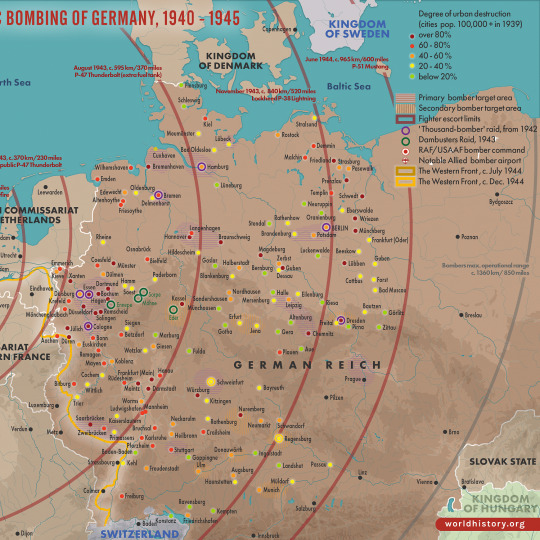
Allied Bombing of Germany
The Allied strategic bombing of Germany during World War II (1939-45) had multiple aims, which included destroying Germany's capacity to produce weapons; disrupting transport networks and supplies of oil, steel, and coal; destroying the German air force; and breaking civilian morale. To these ends, industrial cities, factories, railways, airfields, and dams were struck throughout the conflict.
Secondary goals of the strategic bombing campaign by the British Royal Air Force (RAF) and United States Army Air Force (USAAF) included boosting home morale that Germany was paying a price for its invasion of Europe and bombing of Britain. Another aim was to demonstrate to the USSR that the Western allies were assisting the Soviet campaign on the Eastern Front. Some Allied commanders believed that the war could be won using air power alone, avoiding a land invasion. As it turned out, despite the bombers causing tremendous physical damage and the deaths of hundreds of thousands of civilians, Germany fought on, and only a land operation from the east and west would finally win the war.
Why Did the Allies Bomb Germany?
The official military objectives of the strategic bombing of Germany are indicated in several directives formulated by the Allied Joint Chiefs of Staff. The Casablanca conference in January 1943 noted that the objective of the bombing offensive was:
The progressive destruction and dislocation of the German military, industrial and economic system, and the undermining of the morale of the German people to a point where their capacity for armed resistance is fatally weakened.
(Dear, 196)
The Casablanca objective was amended by the Pointblank Directive of June 1943. This emphasised the importance of destroying German fighter plane production in readiness for the D-Day Normandy landings (Operation Overlord) planned for the summer of 1944. Before the Allies could contemplate a land invasion of Continental Europe they had to achieve air superiority or their armada would be destroyed. The Quebec conference of August 1943 reaffirmed the objectives of Casablanca and Pointblank but removed the objective regarding civilian morale.
Other aims of the bombings, perhaps not officially expressed but there, nonetheless, were to show the British and American public and Russia that something was being done to take the war to Germany. In the absence of a land attack on Germany, bombing was the next best thing. As the German Armaments Minister Albert Speer (1905-1981) noted, the air war became "a second front", one that absorbed men and machines which otherwise could have been used on the Eastern Front against Russia and in coastal defences in northern France.
Continue reading...
26 notes
·
View notes
Text
Why has Belgium vowed to back the ICJ’s verdict on Gaza ‘genocide’?
Unlike other European nations, Belgium has said it would support the international court’s decisions on South Africa’s case against Israel.
As the world anticipates a preliminary verdict from the International Court of Justice (ICJ) on South Africa’s genocide case against Israel, leaders in the European Union remain divided on how to interpret the decision.
Shortly after the two-day hearing at the world’s top court in the Hague earlier this month, where South Africa told the ICJ that Israel’s actions in the Gaza strip violated the UN’s 1948 Genocide Convention, Germany, Austria and the Czech Republic – staunch allies of Israel – rejected these claims. Hungary condemned the case, while Berlin declared that it would intervene on Israel’s behalf at the ICJ.
Last week, France, which is home to Europe’s largest Muslim and Jewish minorities and has been in the headlines for banning pro-Palestine protests since October 7, chimed in, saying Paris also does not support the ICJ case against Israel.
“To accuse the Jewish state of genocide is to cross a moral threshold,” said French Foreign Minister Stephane Sejourne.
Other EU nations have remained silent on the court case.
Slovenia is an exception, having announced its support for another ICJ case against Israel regarding Palestinian rights.
And, among the bloc’s more outspoken critics of Israel’s military conduct in Palestine, Ireland has adopted a cautious stance. In Spain, the minority left-wing Sumar party in the coalition government backed South Africa’s case.
Last week, in Belgium, socialist politician Caroline Gennez, minister of development cooperation and urban policy, said the country would support to the ICJ’s decision.
“If the International Court of Justice calls on Israel to cease its military campaign in Gaza, our country will fully support it,” she said in a social media post.
At a news conference in Brussels on Friday, Ludivine Dedonder, defence minister, reiterated: “Today, the Belgian government is speaking out in favour of an immediate ceasefire in Gaza, the unimpeded delivery of humanitarian aid, and support for the ICJ.”
What’s behind Belgium’s position?
The prevailing European view since October 7 has been that Israel has a right to self-defence against the Palestinian group Hamas, as long as it stays within the boundaries of international law.
But as the latest escalation of the Israel-Palestine conflict rages on, some Belgian leaders have been more openly critical of Israel’s actions as the Palestinian death toll mounts.
After Hamas attacked southern Israel in early October, killing 1,139 people, Israeli forces have bombarded Gaza, the densely populated Strip Hamas governs with a pre-war population of 2.2 million people. During air attacks and as part of its ground invasion, the Israeli army has killed more than 25,000 people, among them many women and children, and stands accused of widespread atrocities.
In November, the Belgian government, a coalition of seven political parties, said 5 million euros ($5.4m) from the federal government will be used to support the International Criminal Court (ICC) in The Hague to investigate possible war crimes in Israel and Gaza.
Brigitte Herremans, a postdoctoral researcher at the Human Rights Centre at the University of Gent in Belgium, told Al Jazeera the tiny European country traditionally adopts strong positions on international law with regard to the Middle East conflict.
“Observers would say that it also has to do with Belgium’s own history of being occupied historically by foreign powers,” she added.
During both world wars, Belgium was under German occupation.
Herremans said that Belgium’s stance today is similar to its previous positions on other foreign policy issues, such as the Iraq war.
“In general, we always saw Belgium somehow stick to a position that the acquisition of territory by force wasn’t accepted,” she said.
But Marc Botenga, of Belgium’s leftist Workers’ Party and an EU lawmaker, said the government’s support to the ICJ is still limited.
“If you look closely at their statement there is no active attitude to actually support the South African case against Israel. The government just says they will support whatever decision the ICJ takes, which is logical since all member states of the United Nations are supposed to support the institution’s court,” Bottenga told Al Jazeera. “However we have to commend the Belgian public for this stance which other EU nations have not really taken.”
Large protests in different Belgian cities have played a role in pressuring the government to call for a ceasefire in Gaza, he said.
Meanwhile, Belgium has declared its participation in the EU Red Sea Mission against Yemen’s Houthis, the Iran-linked group which says its recent attacks on ships linked to Israel or its allies are aimed at pressuring officials to stop the onslaught of Gaza.
“That’s not the kind of stance we want,” Bottega said of Belgium’s participation.
Herremans said that since Belgium currently holds the presidency of the Council of the European Union – a decision-making body in which ministers coordinate policies and adopt laws – his country is responsible for developing consensus.
“Belgium has to take into account the position of staunch pro-Israeli countries, so [it] might have to be more cautious and less vocal on international law. But it will not take a fundamentally different position from what it always has,” she said.
Belgium’s position on Israel-Palestine
Historically, Belgium has shown solidarity towards Palestine while also supporting Israel.
At the UN in 2012, it voted in favour of giving Palestine “non-member” observer status. Last year, it supported a UN resolution ordering the ICJ to investigate the Israeli occupation of Palestinian territories.
But discussing the Israeli-Palestinian issue in the Parliament can be difficult, because of diverse views between political parties in the Flanders in the north, Wallonia in the south, and the Brussels region.
Some Belgian sources told Al Jazeera that of the seven coalition partners, the progressives – Greens and Social Democrats – believe concrete measures have to be taken to ensure international law is applied in the Gaza Strip and the occupied West Bank with regard to the ICJ case.
In recent months, the Flemish Liberal Party of Prime Minister De Croo and Flemish Christian-Democrats have also toughened their stance on the situation in Palestine.
In November, the premier described Israel’s campaign in Gaza as “disproportionate” as he condemned the army’s bombing of Gaza refugee camps.
But the French-speaking Liberal Party, to which the foreign affairs minister belongs, has traditionally been pro-Israel.
Elections
Looking ahead, Belgium heads to the polls in June, which could end up shifting the country’s stance if a new government comes into power.
Fourat Ben Chikha, vice president of the senate, the federal parliament’s upper house, told Al Jazeera that even if the current coalition changes, as an international community, de-escalation and respect for human rights and international law should be every Belgian government’s priority.
Willem Staes, senior Middle East adviser at 11.11.11, a Belgian international solidarity organisation which lobbies Belgian and European governments to uphold human rights, said that regardless of the Belgian government’s composition, foreign policy has traditionally focused on fighting against impunity and promoting accountability.
“The current government is consequently applying this logic and leading the way at EU level. So providing support to the ICJ and the ICC, or calling for a permanent ceasefire, is not about being ‘pro-Palestinian’ or ‘anti-Israel’,” Staes told Al Jazeera.
“It’s about common sense and choosing the only logical side, which is the side of international law. The fact that this is considered ‘radical’ by some tells you everything you need to know about the state of European politics.”
#international court of justice#icj#belgium#free palestine#palestine#save palestine#gaza#save gaza#free gaza#world news#current events#israel#israel palestine conflict#israeli apartheid#war on gaza#gaza strip#gazaunderattack#gaza genocide#palestinian genocide#ceasefire#stop the genocide#genocide
48 notes
·
View notes
Text
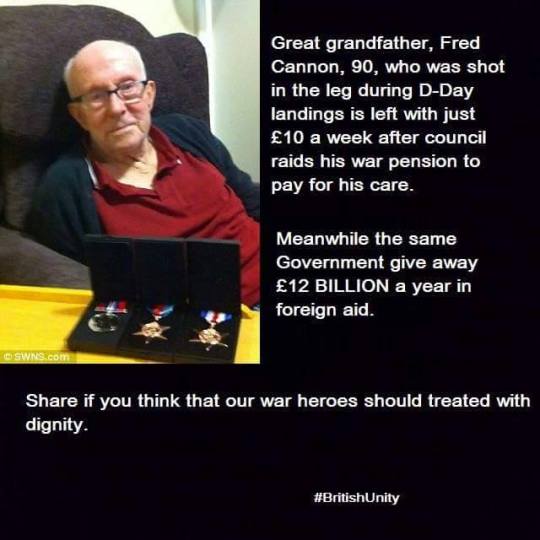

Indeed, our war heroes need to be treated with dignity and respect.
#D-Day#Normandy landings#Allied invasion#France#UK#British stamps#6 June 1944#injured veterans#On this day#Sword Beach#Juno Beach#war heroes#honour#sacrifice
19 notes
·
View notes
Text
King George VI - Christmas Message (1943)
Once again, from our home in England, the Queen and I send our Christmas greetings and good wishes to each one of you, all the world over. Some of you may hear me on board your ships, in your aircraft, or as you wait for battle in the jungles of the Pacific Islands or on the Italian peaks. Some of you may listen to me as you rest from your work, or as you lie sick or wounded in hospital. To many of you, my words will come as you sit in the quiet of your homes. But, wherever you may be, today of all days in the year, your thoughts will be in distant places and your hearts with those you love. I hope that my words, spoken to them and to you, may be the bond that joins us all in one company for a few moments on this Christmas Day.
With this thought in my mind, I wish to all who are on service good luck and a stout heart; to those who wait for them to return, proud memories and high hopes to keep you strong; to all children, here and in the lands beyond the seas, a day of real happiness.
I send these words of Christmas greeting to all of you who dwell within the family of the British Commonwealth and Empire. I know you would wish me to send a message of hope to our gallant allies who fight with us, and to all who, in the loneliness of exile or the horror of invasion, look forward to our coming victory.
In this year almost passed, many things have happened, under God’s providence, to make us thankful for His mercies. The generous strength of the United States of America, the tremendous deeds of Russia, the endurance of China under her long ordeal, the fighting spirit of France re-born, and the flower of the manhood and womanhood of many lands that share the burdens of our forward march - all these have played their part in the brightening of our fortunes on sea, on land, and in the air.
Since I last spoke to you many things have changed. But the spirit of our people has not changed. As we were not downcast by defeat, we are not unduly exalted by victory. While we have bright visions of the future we have no easy dreams of the days that lie close at hand. We know that much hard working and hard fighting, and perhaps harder working and harder fighting than ever before, are necessary for victory. We shall not rest from our task until it is nobly ended. Meanwhile, within these islands, we have tried to be worthy of our fathers; we have tried to carry into the dawn the steadfastness and courage vouchsafed to us when we stood alone in the darkness.
This is not the time for a chronicle of our progress. But there is one landmark in the sombre, world-embracing battlefield which I hope and I trust may endure. Wherever their duty has called our men and women, they have gained new friends and come to know old friends better. They have learnt to share the burdens, and to read the hearts, of their neighbours; they have laid the foundations of new friendships between nations, and strengthened old ones formed long ago. As a result, there is springing up in every country fresh hope that out of comradeship in sacrifice shall come power to restore, and power to build anew.
I saw proof of this when I visited North Africa in the summer. I saw many thousands of men of the United Nations, united in action, in heart and mind and purpose. The only rivalry between them was in the service of a great cause; their only aim was the defeat of a common enemy.
In the same spirit of unity, men of diverse races have come together in the council chamber and round the conference-table: some to meet the stern, immediate demands of war itself; others to heal the wounds that war deals to all humanity - to feed the hungry, shelter the homeless, mend the broken, and succour the poor. So, as we see the clouds breaking on this Christmas Day, we should take comfort from our faith that out of desolation shall rise a new hope, and out of strife be born a new brotherhood.
From this ancient and beloved festival that we are keeping, sacred as it is to home and all that home means, we can draw strength to face the future of a world riven by a tempest such as it has never yet endured. In the words of a Scottish writer of our day: ‘No experience can be too strange and no task too formidable, if a man can link it up with what he knows and loves.’¹
---
1. From Memory Hold-the-Door, by John Buchan (Lord Tweedsmuir)
35 notes
·
View notes
Text
Brussels Playbook: France, Germany vs. visa ban — VDL’s ‘emergency intervention’ — Trump’s ‘intel’ on Macron – POLITICO

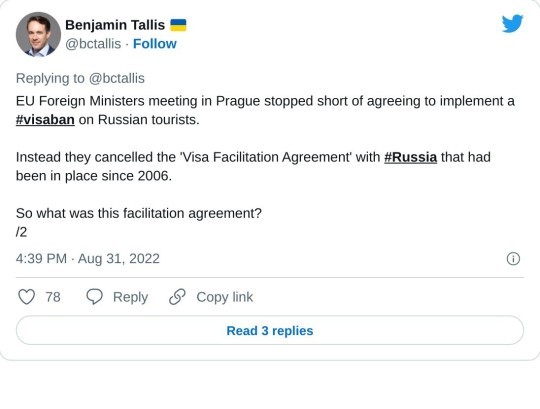




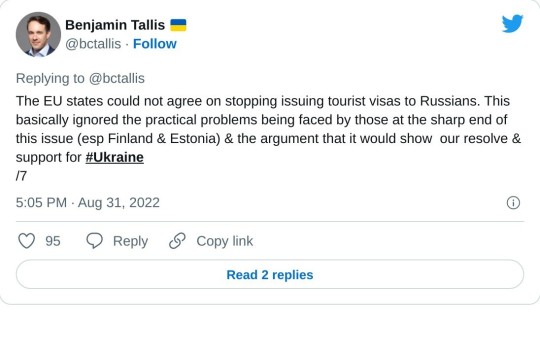
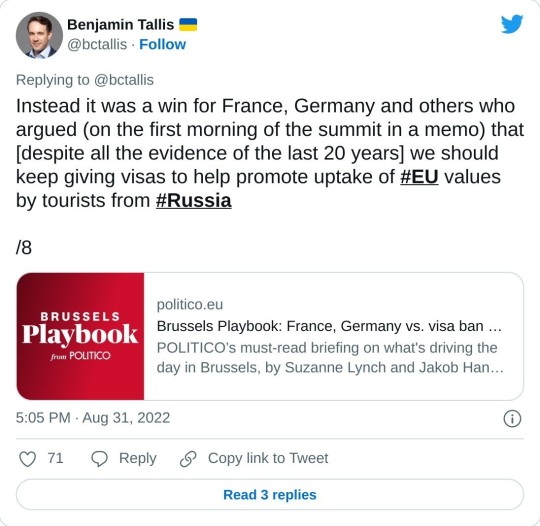
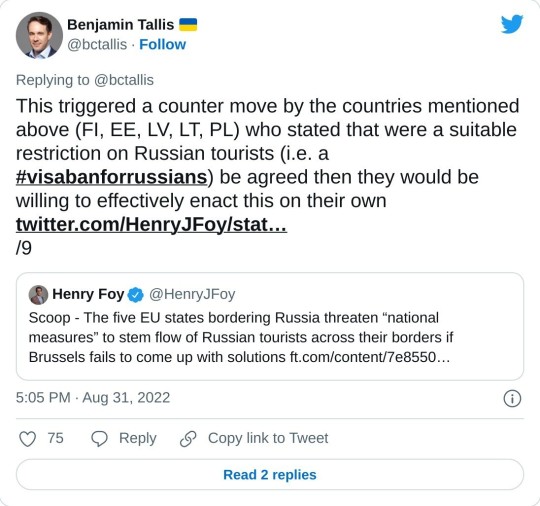

PART ONE
#no visas to russian citizens#no tourist visa for russians#visa ban#france & germany against everyone else#stop russian invasion#putin war criminal#ukraine war#putin war ukraine russia#help ukraine#stop putin's agents usa#stop putin allies#slava ukraini
5 notes
·
View notes
Text
Doing research on WW2 such as the geo-political climate (which was never Really mentioned in my American public school), keeping a copy of the mandate for Leadership on my phone, staying updated on current events, and my very autistic knack for pattern recognition has me fight or flight.
I don't know what WW3 is gonna look like, it may very be another cold war. But it's here.
When we look back on this, we won't say that it started when the US finally took up arms. The war started way before the US was willing to admit there was even a problem.
It will be like WW2, where the US let as many ppl die as the world would allow before they and the other allied forces stepped in.
And just like back then people are asking "why won't the USA or France or the UK do something? Why are they letting it go on so long?"
And the answer is the same as it was back in WW2.
The allied forces themselves were was antisemitic, greedy, and politically driven.
Oh yeah and if you look real close and squint you can also see an oil grab in Iran that happened during ww2. You know "to stop the axis powers" from having oil 🙄
So why would they get involved if they didn't have to?
Remember how they ONLY involved themselves because Poland, an ally to UK and France was invaded?
What are the chances of Netanyahu attacking a US ally, you think?
In fact..I don't remember learning almost a damn thing about the middle east during ww2? But I'd be willing to bet my life its not so different from now. You know. Some non-arab nation doing something shitty but for some fucking reason Arab and Muslim nations are punished?
So lemme just head onto google real quick.
Huh. Would you look at that.
"The Anglo-Soviet invasion of Iran or Anglo-Soviet invasion of Persia was the joint invasion of the neutral Imperial State of Iran by the United Kingdom and the Soviet Union in August 1941. The two powers announced that they would stay until six months after the end of the war with their enemy Nazi Germany (World War II), which turned out to be 2 March 1946. On that date the British began to withdraw, but The Soviet Union delayed until May, citing "threats to Soviet security"
The invasion, code name Operation Countenance, was largely unopposed by the numerically and technologically outmatched Iranian forces. The multi-pronged coordinated invasion took place along Iran's borders with the Kingdom of Iraq, Azerbaijan SSR, and Turkmen SSR, with fighting beginning on 25 August and ending on 31 August when the Iranian government formally agreed to surrender, having already agreed to a ceasefire on 30 August."
So this says Iran surrendered in just 5 days and then then they were occupied for almost 6 years...
To keep Hitler from having oil, right? Thing is: Germany got most of its oil from the Baku fields.
In Russia. 🙃
The attack also took place less than two months after Allied victories over pro-Axis forces in neighbouring Iraq and French Syria and Lebanon.
That's an awful lot of fighting in the middle east when Hitler in Germany and Europe was the fucking problem 🙃🙃
The invasion's strategic purpose was to ensure the safety of Allied supply lines to the USSR (see the Persian Corridor), secure Iranian oil fields, limit German influence in Iran and preempt a possible Axis advance from Turkey through Iran toward the Baku oil fields or British India.
They nabbed Iran's oil because they could under the pretense of "well what if the axis powers attack us through Iran?"
Kind of like "well what if the terrorists attack us through the Red Sea?"

47 notes
·
View notes
Text

AUDIE MURPHY
Section 46, Grave 366-11
He wanted to join the Marines, but he was too short. The paratroopers wouldn't have him, either. Reluctantly, he settled on the infantry, and ultimately became one of the most decorated heroes of World War II. He was Audie Murphy, the baby-faced Texas farmboy who became an American legend. Murphy grew up on a sharecropper's farm in Hunt County, Texas. After his father deserted the family, he helped raise his 11 brothers and sisters, dropping out of school in the fifth grade to earn money picking cotton. He was 16 years old when his mother died, and he watched as his siblings were doled out to an orphanage or to relatives. Seeking an escape from this difficult life, Murphy enlisted in the Army in 1942 — falsifying his birth certificate so that he appeared to be 18, one year older than he actually was.
Following basic training, Murphy was assigned to the 15th Regiment, 3rd Infantry Division in North Africa. First entering combat in July 1943, during the invasion of Sicily, he proved himself to be a proficient marksman and a highly skilled soldier. He consistently demonstrated how well he understood the techniques of small-unit action. Murphy landed at Salerno, Italy to fight in the Voltuno River campaign, and then at Anzio to be part of the Allied force that fought its way to Rome. Throughout these campaigns, Murphy's skills earned him advancements in rank, because many of his superior officers were being transferred, wounded or killed. After the capture of Rome in June 1944, Murphy earned his first decoration for gallantry.
Shortly thereafter, his unit was withdrawn from Italy to train for Operation Anvil-Dragoon, the invasion of southern France that began on August 15, 1944. During seven weeks of fighting in that successful campaign, Murphy's division suffered 4,500 casualties, and he became one of the most decorated men in his company. But his biggest test was yet to come.
On January 26, 1945, near the village of Holtzwihr in eastern France, Lt. Murphy's forward positions came under fierce attack by the Germans. Against the onslaught of six Panzer tanks and 250 infantrymen, Murphy ordered his men to fall back to better their defenses. Alone, he mounted an abandoned, burning tank destroyer and, with a single machine gun, contested the enemy's advance. Wounded in the leg during the heavy fire, Murphy remained there for nearly an hour, repelling the attack of German soldiers on three sides and single-handedly killing 50 of them. His courageous performance stalled the German advance and allowed him to lead his men in the counterattack which ultimately drove the enemy from Holtzwihr. For this, Murphy was awarded the Medal of Honor, the United States' highest award for gallantry in action.
By the end of World War II, Murphy had become one of the nation's most-decorated soldiers, earning an unparalleled 28 medals (including three from France and one from Belgium). Murphy had been wounded three times during the war. In May 1945, when victory was declared in Europe, he had still not reached his 21st birthday.
Audie Murphy returned to a hero's welcome in the United States. His photograph appeared on the cover of Life magazine, and actor James Cagney persuaded him to embark on an acting career. Still shy and unassuming, Murphy arrived in Hollywood with only his good looks and — by his own account — "no talent." Nevertheless, he went on to make more than 40 films. His first part was just a small one in the 1948 film "Beyond Glory." The following year, he published his wartime memoir, "To Hell and Back," which received positive reviews. In 1955, he portrayed himself in the movie version of the book. Many film critics, however, believe that his best performance was "The Red Badge of Courage," director John Huston's 1951 Civil War epic based on the novel by Stephen Crane.
Murphy retired from acting after 21 years, and subsequently bred race horses and pursued various business ventures. But he struggled financially, due to gambling and unsuccessful investments, and he declared bankruptcy in 1968. Murphy suffered from what is now known as post-traumatic stress disorder, experiencing headaches, depression and nightmares; he once said that he could sleep only with a loaded pistol under his pillow. In 1971, at the age of 46, Murphy died in the crash of a private plane near Roanoke, Virginia.
Audie Murphy is buried in Section 46, just across from the Memorial Amphitheater. A special flagstone walkway has been constructed to accommodate the large number of people who stop to pay their respects to this hero.
Medal of Honor citation:
"2d Lt. Murphy commanded Company B, which was attacked by 6 tanks and waves of infantry. 2d Lt. Murphy ordered his men to withdraw to prepared positions in a woods, while he remained forward at his command post and continued to give fire directions to the artillery by telephone. Behind him, to his right, 1 of our tank destroyers received a direct hit and began to burn. Its crew withdrew to the woods. 2d Lt. Murphy continued to direct artillery fire which killed large numbers of the advancing enemy infantry. With the enemy tanks abreast of his position, 2d Lt. Murphy climbed on the burning tank destroyer, which was in danger of blowing up at any moment, and employed its .50 caliber machinegun against the enemy. He was alone and exposed to German fire from 3 sides, but his deadly fire killed dozens of Germans and caused their infantry attack to waver. The enemy tanks, losing infantry support, began to fall back. For an hour the Germans tried every available weapon to eliminate 2d Lt. Murphy, but he continued to hold his position and wiped out a squad which was trying to creep up unnoticed on his right flank. Germans reached as close as 10 yards, only to be mowed down by his fire. He received a leg wound, but ignored it and continued the single-handed fight until his ammunition was exhausted. He then made his way to his company, refused medical attention, and organized the company in a counterattack which forced the Germans to withdraw. His directing of artillery fire wiped out many of the enemy; he killed or wounded about 50. 2d Lt. Murphy's indomitable courage and his refusal to give an inch of ground saved his company from possible encirclement and destruction, and enabled it to hold the woods which had been the enemy's objective."
74 notes
·
View notes